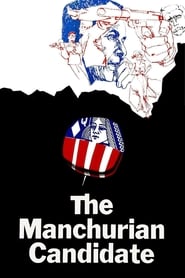Oh, so that's where James Cameron got the "murder through the milk carton" idea from in Terminator 2, right? Anyway, never trust a guy who puts that much ketchup on a steak.
When you look, now, at this 1962 black-and white movie made up of bits of pieces of Hitccock and Orson Welles, of Psycho and Citizen Kane most obviously made up a lot of clean steals, workmanlike thievery, a second-class director with a first-class cast using whatever he can get his hands on —what's overwhelming is a sense of what the movie does that movies can no longer do.[…]
We know that elevator operators, to the degree that they even exist, can't do that any more. We know that even if we get another Korean War, another Joe McCarthy, we won't get any more elevator operators smoking in elevators. Such tiny details, as we seem them today, make the movie seem safe. They protect us from it. Maybe, subliminally, as the movie plays itself out, we try to onto such details, because the rest of the movie is so familiar.
— Greil Marcus: The Manchurian Candidate (BFI Film Classics, 2020)
What emerges from this crucible of irony and desolation [is] the first authentically postnoir thriller. Or/and the first American New Wave film. It’s striking how much more supplely Brecht-inflected the speech-as-didactic/atonal-music of The Manchurian Candidate is than that coming out of the tin soldier and mock gangster mouthpieces of Godard.
— Howard Hampton (Criterion)
A reporter from a South African press association telephoned from London to ask if I felt responsible for the President's killing, inasmuch as I had written a novel, The Manchurian Candidate, on which had been based a film that had just been "frozen" in the United States because it was felt that the assassin might have seen it and been influenced by it. I told the reporter that, with all Americans, I had contributed to form the attitudes of the assassin; and that the assassin, and Americans like him, had contributed to the attitudes that had caused me to write the novel.
— Richard Condon (The Nation, 1963)
One of the reasons McCain’s father resisted his son’s early release from the camp was, according to a high-level diplomatic telegram, President Johnson’s fear that ‘people will wonder if McCain had been brainwashed.’
— Tom Vanderbilt (London Review of Books)
The movie plays on standard Hollywood clichés as if on a grand organ — delivering most of them deadpan, but mixing and altering them so adroitly that they often come out as surreal gibberish.[…]
The politics of the movie are in fact a kind of shadow play, manipulated like the Hollywood cliches for the sake of jazzy effects, just as the characters function basically as dream figures.
— Jonathan Rosenbaum (Chicago Reader, 1988)
Synopsis: Near the end of the Korean War, a platoon of U.S. soldiers is captured by communists and brainwashed. Following the war, the platoon is returned home, and Sergeant Raymond Shaw is lauded as a hero by the rest of his platoon. However, the platoon commander, Captain Bennett Marco, finds himself plagued by strange nightmares and soon races to uncover a terrible plot.

